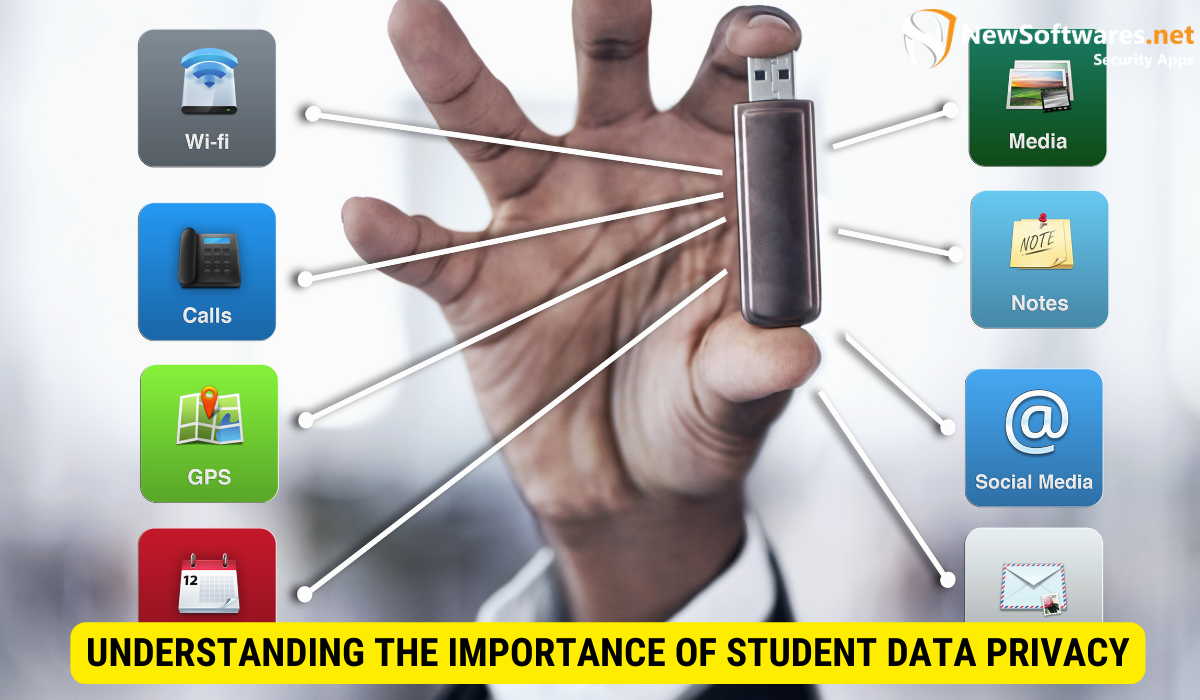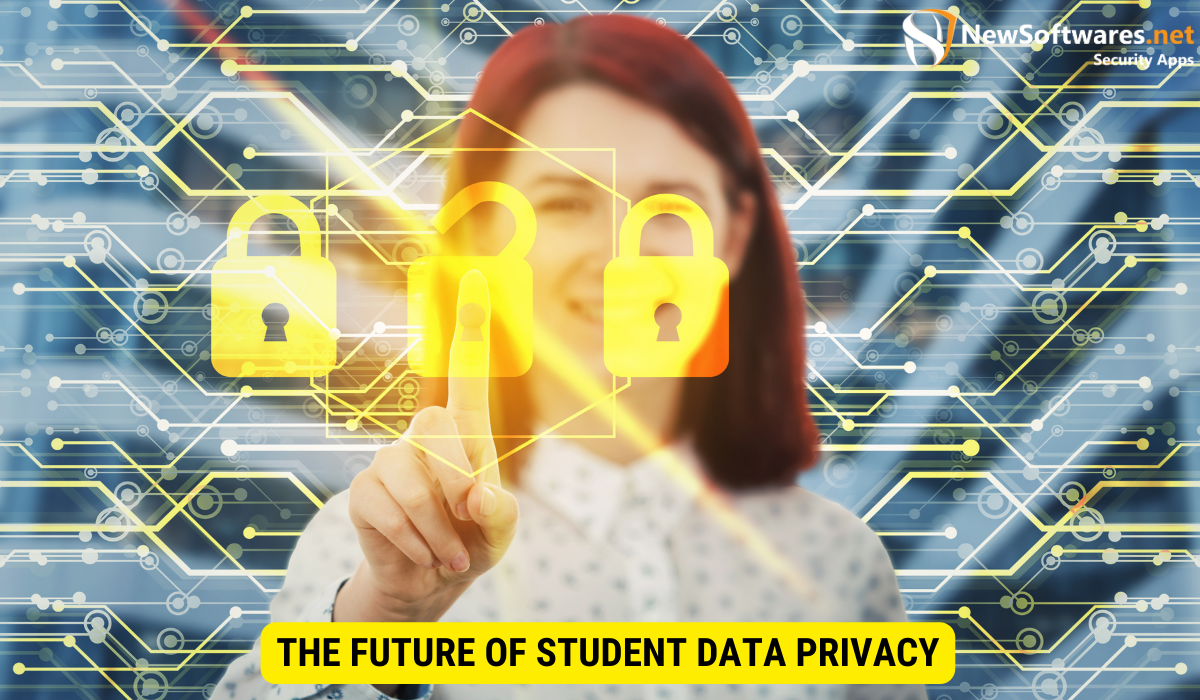The federal government can protect student data and privacy by enacting robust legislation, enhancing encryption standards, implementing stricter penalties for breaches, collaborating with technology experts, and ensuring educational institutions comply with data protection standards.
In today’s digital age, where technology is seamlessly integrated into every facet of our lives, student data and privacy have become paramount concerns. As educational institutions and stakeholders leverage cutting-edge tools and platforms to enhance the learning experience, the need for robust protection of student data has never been more crucial. Together, we will explore the various measures the federal government can implement to safeguard student data and privacy, the existing legislation in place, potential improvements, and the pivotal role of schools in ensuring data security.
Understanding the Importance of Student Data Privacy

Student data privacy is a critical aspect of modern education. It encompasses sensitive personal information, academic records, and identifiable data that, if mishandled or exposed, can lead to severe consequences. Preserving student privacy is not just a legal and ethical obligation; it also instills trust among students, parents, and educational institutions.
When student data is protected, it promotes a safe and conducive learning environment. Students feel secure knowing their personal information is handled with care, allowing them to focus on their education without worrying about potential privacy breaches.
Furthermore, safeguarding student data helps to establish a culture of trust and transparency within educational institutions. When schools prioritize data privacy, they clearly message students and parents that their privacy is valued and respected. This, in turn, fosters a positive relationship between the school and its stakeholders, leading to better collaboration and support for students’ educational journey.
The Role of Federal Government in Data Protection
The federal government plays a pivotal role in safeguarding student data through legislation and policies that outline their rights, provide guidelines for data collection and usage, and establish consequences for any data breaches or mishandling. The government ensures that educational institutions prioritize student data privacy by enacting laws such as the Family Educational Rights and Privacy Act (FERPA) in the United States.
Moreover, the federal government can collaborate with technology experts to develop robust frameworks and protocols prioritizing student data privacy. This collaboration helps avoid emerging threats and ensures educational institutions have access to the necessary resources and expertise to effectively protect student data.
Additionally, the government acts as a regulatory body, monitoring educational institutions and relevant stakeholders to ensure compliance with data protection standards. By conducting audits and providing guidance, the government helps educational institutions understand and implement best practices for data privacy.
The Risks Associated with Breach of Student Data
A student data breach can have significant consequences for individuals and educational institutions. It can lead to identity theft, fraud, cyberbullying, or the inappropriate use of personal information. Students may experience emotional distress and loss of trust in the educational system, while educational institutions may face legal and reputational repercussions.
The federal government needs to address these risks proactively and implement measures to prevent breaches from occurring. By investing in robust cybersecurity measures, conducting regular audits, and providing educational institutions with resources and training, the government can help mitigate the risks associated with data breaches.
Furthermore, raising awareness about the importance of student data privacy is crucial. Educational institutions, parents, and students must understand the potential risks and take precautions to protect personal information. By fostering a culture of data privacy, educational institutions can empower students to become responsible digital citizens and protect their privacy.
Existing Federal Laws on Student Data Privacy
The federal government has established several laws to protect student data privacy. Three primary laws include the Family Educational Rights and Privacy Act (FERPA), the Protection of Pupil Rights Amendment (PPRA), and the Children’s Online Privacy Protection Act (COPPA).
The Family Educational Rights and Privacy Act (FERPA)
FERPA grants parents and eligible students (18 years or older or attending a postsecondary institution) the right to control and protect their educational records. It prohibits the disclosure of these records without the prior consent of the parent or eligible student.
Additionally, FERPA provides guidelines on the proper handling, storage, and accessibility of student records, ensuring their confidentiality and privacy.
The Protection of Pupil Rights Amendment (PPRA)
PPRA safeguards students’ privacy by restricting surveys, analyses, or evaluations conducted within schools. It requires parental consent before students’ personal information is used for marketing purposes and protects their right to opt out of certain activities.
The law ensures that students’ personal beliefs, attitudes, and behaviors are respected, promoting a safe and inclusive learning environment.
The Children’s Online Privacy Protection Act (COPPA)
COPPA focuses on protecting the privacy and online safety of children under 13. It requires websites and online services to obtain parental consent before collecting personal information from children. COPPA also mandates the creation of clear and concise privacy policies and provides parents with the right to review, delete, and decline the further collection of their child’s personal information.
These laws serve as a foundation for protecting student data privacy, but there is room for improvement and adaptation to the evolving digital landscape.
Potential Improvements to Current Legislation
While the existing federal laws provide a framework for student data protection, continuous improvements are required to address emerging challenges. Here are two potential areas of focus:
Strengthening Data Encryption Standards
One way to enhance student data privacy is by strengthening data encryption standards. The federal government can collaborate with technology experts to establish robust encryption protocols, making it significantly harder for unauthorized individuals to access and tamper with sensitive student data.
Additionally, regular audits and assessments of encryption practices can ensure that educational institutions implement state-of-the-art security measures.
Implementing Stricter Penalties for Data Breaches
To deter data breaches and ensure stricter compliance with privacy standards, the federal government can introduce stricter penalties for any student data breaches or mishandling. These penalties can include significant fines, sanctions, or legal consequences, serving as a deterrent for potential wrongdoers.
Moreover, the government can create a centralized reporting system to track data breaches and provide guidance and support to educational institutions to prevent future incidents.
The Role of Schools and Educational Institutions
While the federal government is crucial in protecting student data privacy, schools and educational institutions bear significant responsibilities. Here are two key areas where schools can contribute:
Promoting Awareness and Education on Data Privacy
Schools can actively promote awareness and education on data privacy among students, parents, and staff. Schools can ensure that all stakeholders understand the importance of safeguarding student data and the potential risks involved by conducting regular workshops, training sessions, and awareness campaigns.
Furthermore, schools can engage students in conversations about online safety, responsible use of technology, and protecting personal information. This empowers students to make informed decisions and take ownership of their digital footprint.
Implementing Robust Data Security Measures
Schools must take proactive measures to implement robust data security practices. This includes regularly updating software, firewalls, and antivirus programs, securing networks, and conducting frequent security assessments.
Establishing clear policies and procedures for data handling within educational institutions, including password protection and access controls, can significantly reduce the risk of data breaches.
The Future of Student Data Privacy

The landscape of student data privacy continues to evolve, necessitating a proactive approach from the federal government and educational institutions. Here are two aspects that should be considered for the future:
Anticipating Future Challenges in Data Protection
With technological advancements, new challenges in data protection are bound to arise. The federal government must remain vigilant and adaptive, anticipating potential threats and enhancing legislation accordingly. The government can proactively address emerging risks by engaging in ongoing communication with educational institutions and technology experts.
The Role of Technology in Enhancing Data Privacy
As technology evolves, there will be increased opportunities for innovative solutions to protect student data privacy. The federal government should encourage research and development in artificial intelligence and machine learning technologies that can detect and prevent data breaches.
By embracing technological advancements, the government can stay at the forefront of data protection and ensure robust security practices.
Key Takeaways
- Critical Importance of Data Privacy: Protecting student data is essential for maintaining trust, security, and a conducive learning environment in educational settings.
- Federal Government’s Legislative Role: Key laws like FERPA, PPRA, and COPPA lay the foundation for student data protection, with the government playing a crucial role in legislation and enforcement.
- Continuous Improvement Needed: Adapting and enhancing existing laws to address new challenges in the digital age is necessary for better data protection.
- Schools’ Responsibilities: Schools must actively engage in educating students and staff about data privacy and implement effective data security practices.
- Future Outlook: Anticipating future challenges and embracing technological advancements are key to evolving and strengthening student data privacy measures.
FAQs
Why is student data privacy important?
Student data privacy is important as it protects sensitive personal information, builds trust, and ensures a safe learning environment.
What are the existing federal laws on student data privacy?
The existing federal laws on student data privacy include FERPA, PPRA, and COPPA.
How can the federal government improve student data privacy legislation?
The federal government can improve student data privacy legislation by strengthening encryption standards and implementing stricter penalties for data breaches.
What is the role of schools in protecting student data privacy?
Schools play a crucial role in promoting awareness about data privacy and implementing robust data security measures.
What is the future of student data privacy?
The future of student data privacy involves anticipating future challenges and leveraging technology to enhance protection.
Conclusion
The protection of student data and privacy is a dynamic and crucial task requiring collaborative efforts from the federal government, educational institutions, and technology experts. Continuous updates to legislation and practices are essential to address emerging challenges and leverage technological advancements for enhanced data security.
